 Orange has launched, nay unleashed, the Unique phone, its first converged service using a single handset that connects via WLAN in the home and then switches to the regular mobile network when the user goes walkabout.
Orange has launched, nay unleashed, the Unique phone, its first converged service using a single handset that connects via WLAN in the home and then switches to the regular mobile network when the user goes walkabout.
Initially rolling out in the UK and selected European countries, the phone promises unlimited free VoIP calls from home to other Orange mobiles and landlines.
Calls can be seamlessly switched between the Orange mobile network and VoIP, with screen icons keeping customers constantly informed of the network connection.
Interestingly, calls started from home remain free, even when the user has wandered out of their front door and out of range of their Wi-Fi network, causing the phone to switch to the mobile network.
To use the service, customers must get an Orange Livebox which lets users connect to the Orange network via Wi-Fi.
Households can have up to six Unique phones, although there is a limitation on their use, with only three users allowed to use the Internet or make calls at any time.
 So far, only the Motorola A910, the Nokia 6136 and the Samsung P200 can be used with the service, but more phones will be launched in 2007.
So far, only the Motorola A910, the Nokia 6136 and the Samsung P200 can be used with the service, but more phones will be launched in 2007.
Two price plans are currently on offer; the Canary 50 (offering 600 minutes per month) and the Panther 65 (1,200 mins), priced at £50 and £65 respectively.
A broadband connection is bundled in free with the convergence-tastic deal, with the setup offering clear benefits to users, who’ll now only need one phone, one number, one address book, and one bill from Orange.
The service will be available from November, although punters keen to be hip with the convergence crew can pre-register their interest here: www.orange.co.uk/uniquephone
 U.S. Internet advertising revenue has hit a new record high of nearly $8 billion for first six months of the year, increasing by a money-spinning 37 per cent, according to a new study.
U.S. Internet advertising revenue has hit a new record high of nearly $8 billion for first six months of the year, increasing by a money-spinning 37 per cent, according to a new study. The IAB/ PricewaterhouseCoopers figures show that Internet advertising revenue totalled nearly $4.1 billion in the last quarter, representing a thumping a 36 percent increase over the same period last year, and up a healthy 5.5 percent over the first quarter of 2006.
The IAB/ PricewaterhouseCoopers figures show that Internet advertising revenue totalled nearly $4.1 billion in the last quarter, representing a thumping a 36 percent increase over the same period last year, and up a healthy 5.5 percent over the first quarter of 2006. THUS, the communications provider that owns the Demon brand has announced it has become the preferred supplier for HSBC in the UK. The contract is expected to be around £50m plus over 5 years.
THUS, the communications provider that owns the Demon brand has announced it has become the preferred supplier for HSBC in the UK. The contract is expected to be around £50m plus over 5 years.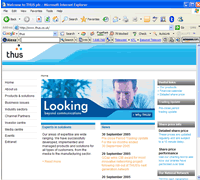 THUS also recently acquired Your Comms (a business telco based in the North of England) and Legend, a smallish ISP with a portfolio of VoIP products. Other acquisitions must be on their mind.
THUS also recently acquired Your Comms (a business telco based in the North of England) and Legend, a smallish ISP with a portfolio of VoIP products. Other acquisitions must be on their mind. If you’ve admired the look of that bloke in Star Trek with the funky sci-fi specs, then maybe the Eye-Theatre glasses might be just the thing for you.
If you’ve admired the look of that bloke in Star Trek with the funky sci-fi specs, then maybe the Eye-Theatre glasses might be just the thing for you. Weighing just 78g, the Eye-Theatre should be good for eight hours between charges (USB charger supplied), and anyone desperate to get that cyber-berk look can pre-order their video glasses from PDT’s website for £149.99, with the launch expected in mid-October.
Weighing just 78g, the Eye-Theatre should be good for eight hours between charges (USB charger supplied), and anyone desperate to get that cyber-berk look can pre-order their video glasses from PDT’s website for £149.99, with the launch expected in mid-October.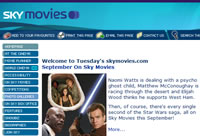 Sky has hit the pause button on delivering films (known by some as movies) and sport via their Sky By Broadband service, due to cracks in Microsoft’s Windows Media DRM software.
Sky has hit the pause button on delivering films (known by some as movies) and sport via their Sky By Broadband service, due to cracks in Microsoft’s Windows Media DRM software. Background
Background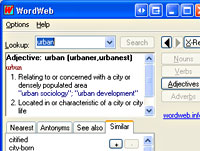 A long time favourite of the Digi-Lifestyles crew, WordWeb is a free, cut-down version of the WordWeb Pro software, and includes a comprehensive English thesaurus and dictionary with the ability to look up words from within external programs.
A long time favourite of the Digi-Lifestyles crew, WordWeb is a free, cut-down version of the WordWeb Pro software, and includes a comprehensive English thesaurus and dictionary with the ability to look up words from within external programs. Simply highlight the word you need a definition for and either click the system tray icon or use the default keyboard shortcut of CTRL+ALT+W.
Simply highlight the word you need a definition for and either click the system tray icon or use the default keyboard shortcut of CTRL+ALT+W.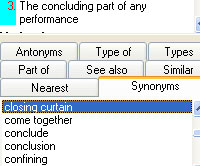 The program can also be used to look up word definitions and alternative synonyms or antonyms – you could, for example, look up “tree”, click on the “Types” tab and you’ll be presented with a list of different types of tree.
The program can also be used to look up word definitions and alternative synonyms or antonyms – you could, for example, look up “tree”, click on the “Types” tab and you’ll be presented with a list of different types of tree. The program – which comes in regionalised flavours – can also access the web to offer a web search of the highlighted word or link to a site with translation capabilities.
The program – which comes in regionalised flavours – can also access the web to offer a web search of the highlighted word or link to a site with translation capabilities. In 2004 the networking giant Cisco sued a little-known Chinese company called Huawei for IP (Intellectual Property) theft. Some two months later the case was dropped and settled out of court. Huawei promised to modify their designs, change their software and manuals. Rumours circulating at the time alleged that the Chinese government got involved and told Cisco that if they wanted to operate in China, they should leave Huawei alone.
In 2004 the networking giant Cisco sued a little-known Chinese company called Huawei for IP (Intellectual Property) theft. Some two months later the case was dropped and settled out of court. Huawei promised to modify their designs, change their software and manuals. Rumours circulating at the time alleged that the Chinese government got involved and told Cisco that if they wanted to operate in China, they should leave Huawei alone. In China engineering talent is relatively cheap and their universities produce very high class students (and lots of them). This brings Huawei another advantage – huge manpower. When bugs are passed to Huawei, they go to their pool of, something like, 20,000 engineers, leading to the faults being tracked and fixed extremely quickly.
In China engineering talent is relatively cheap and their universities produce very high class students (and lots of them). This brings Huawei another advantage – huge manpower. When bugs are passed to Huawei, they go to their pool of, something like, 20,000 engineers, leading to the faults being tracked and fixed extremely quickly. According to new research from The Diffusion Group, only 14% of broadband households would be interested in an iTunes online movie download service for use on PCs or portable devices if titles were priced at $15 each. This compares to total interest of 23% at $10 per download – a 64% decline in interest when increasing the cost per title by only $5.
According to new research from The Diffusion Group, only 14% of broadband households would be interested in an iTunes online movie download service for use on PCs or portable devices if titles were priced at $15 each. This compares to total interest of 23% at $10 per download – a 64% decline in interest when increasing the cost per title by only $5.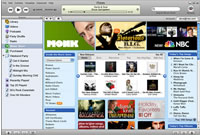 Regardless of whether the iTunes movie download service is announced this month or later this year, Greeson believes that the time is right for Apple to enter this market space. “Although current services such as CinemaNow and Movielink continue to languish, Apple is aware that the conditions are now suitable for extending iTunes to include full-length movie downloads. Consumer awareness has improved; video-over-broadband is now viable; studios are now making movies available for online download to DVDs; portable video platforms are improving qualitatively with each new generation; and Apple’s brand awareness and credibility are at all time highs. As well, CinemaNow and Movielink’s experience, while insightful, is of limited value to Apple, who continues to enjoy the fruits of being a market-maker in portable digital electronics and online media services.”
Regardless of whether the iTunes movie download service is announced this month or later this year, Greeson believes that the time is right for Apple to enter this market space. “Although current services such as CinemaNow and Movielink continue to languish, Apple is aware that the conditions are now suitable for extending iTunes to include full-length movie downloads. Consumer awareness has improved; video-over-broadband is now viable; studios are now making movies available for online download to DVDs; portable video platforms are improving qualitatively with each new generation; and Apple’s brand awareness and credibility are at all time highs. As well, CinemaNow and Movielink’s experience, while insightful, is of limited value to Apple, who continues to enjoy the fruits of being a market-maker in portable digital electronics and online media services.” Prices for Microsoft’s much-anticipated update to their Windows operating system, Vista, have leaked out onto various Websites, including an official Microsoft site.
Prices for Microsoft’s much-anticipated update to their Windows operating system, Vista, have leaked out onto various Websites, including an official Microsoft site.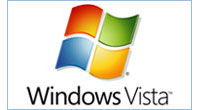 Vista on Amazon
Vista on Amazon As we reported
As we reported  Vivendi Universal, the biggest music group on the planet have signed a deal with Spiralfrog to let surfers download the contents of its man-sized music catalogue for free.
Vivendi Universal, the biggest music group on the planet have signed a deal with Spiralfrog to let surfers download the contents of its man-sized music catalogue for free. Making it pay
Making it pay